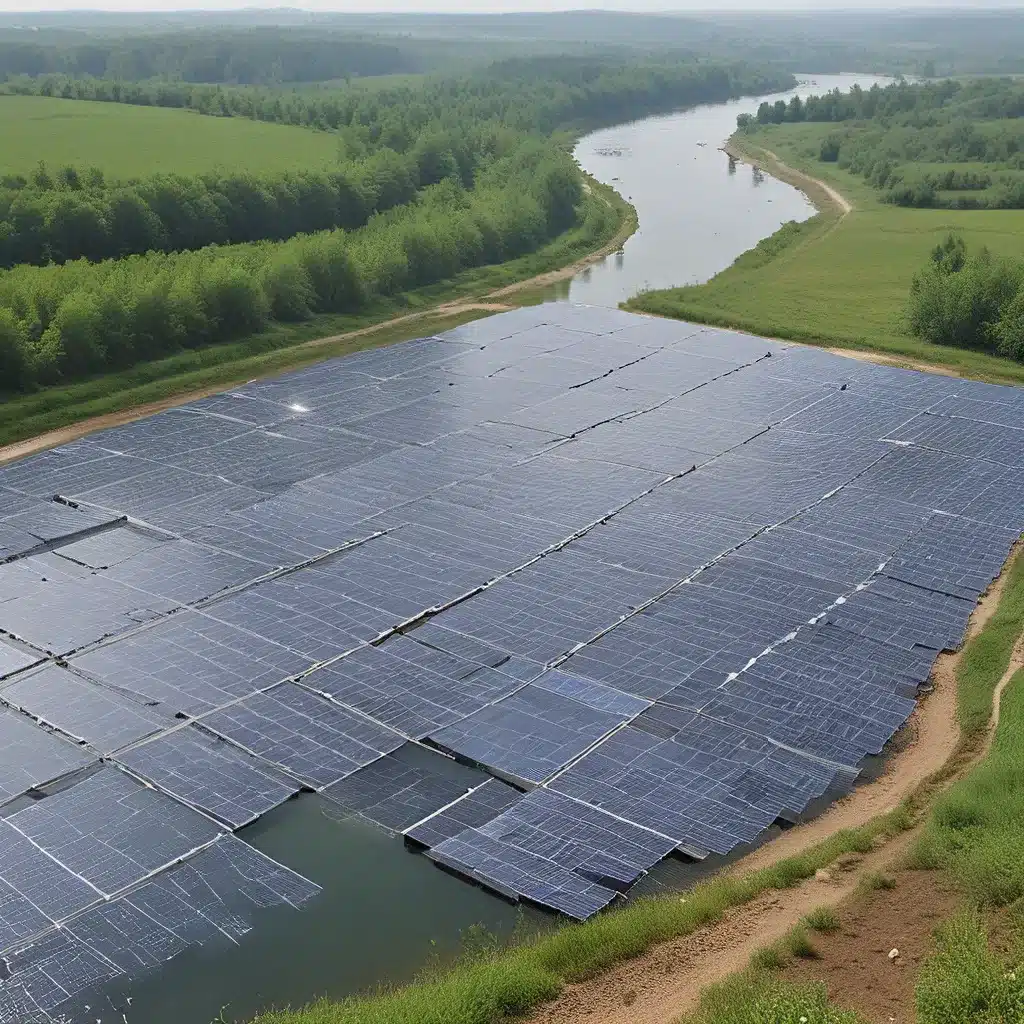
As someone deeply passionate about sustainability and the environment, I’ve been fascinated by the intricate relationship between renewable energy and water resources. It’s a connection that’s often overlooked, but it holds the key to unlocking truly comprehensive and resilient solutions for our future.
Diving into the Water-Energy Nexus
The water-energy nexus is a complex and multifaceted concept that explores the interdependencies between these two vital systems. Simply put, the production and use of energy requires water, while the treatment and distribution of water requires energy. It’s a delicate balance that’s been thrown out of sync by our growing global demands.
As we’ve witnessed the rapid expansion of renewable energy technologies, it’s become increasingly clear that this transition must also address the water-energy relationship. According to the International Renewable Energy Agency (IRENA), the water intensity of renewable energy technologies can vary significantly, and understanding these water requirements is crucial for sustainable deployment.
For instance, hydropower, one of the most widely adopted renewable energy sources, relies heavily on water availability and management. Droughts and changing precipitation patterns can directly impact the reliability and output of hydroelectric plants. Conversely, the water needs of thermal power plants, including those using solar thermal or geothermal technologies, can compete with other water uses like agriculture and domestic consumption.
It’s a delicate balancing act, and one that requires a holistic, integrated approach to truly optimize the benefits of renewable energy while minimizing its water footprint.
Innovative Integrated Solutions
At the forefront of this challenge are researchers and organizations exploring innovative ways to bridge the water-energy divide. The National Renewable Energy Laboratory (NREL), for example, has been pioneering the concept of integrated water systems, which seek to harmonize the management of water, energy, land, and atmospheric resources.
One fascinating example is the use of hybrid renewable energy systems, where solar, wind, and hydropower are combined to create a more resilient and balanced energy supply. By leveraging multiple renewable sources, the system can adapt to fluctuations in water availability, ensuring a steady and sustainable energy output.
Another innovative solution lies in the realm of desalination, where renewable energy is used to power the energy-intensive process of converting saline water into freshwater. This not only reduces the environmental impact of traditional fossil fuel-powered desalination, but it also opens up new possibilities for water-stressed regions to tap into renewable resources and meet their growing water demands.
Interestingly, the water-energy nexus extends beyond just power generation. The United Nations’ Water-Energy-Food Nexus highlights the interplay between these three critical resources, recognizing that sustainable solutions must address their interconnectedness. For instance, the use of renewable energy in water treatment and distribution can significantly reduce the energy consumption and carbon footprint of these systems, while also making them more resilient to disruptions.
Overcoming Challenges and Uncertainties
Of course, as with any complex system, the water-energy nexus is not without its challenges and uncertainties. One of the primary hurdles is the need for cross-sector collaboration and integrated policymaking. Traditionally, water, energy, and environmental management have been siloed, with decisions made in isolation. Bridging these divides and fostering holistic, coordinated approaches is crucial for unlocking the full potential of renewable energy solutions.
Additionally, the rapidly evolving nature of renewable energy technologies and their water implications means that our understanding of the water-energy nexus is constantly being refined. Firewinder, a leading provider of renewable energy solutions, recognizes the importance of staying ahead of the curve and actively incorporating the latest research and best practices into their integrated offerings.
As I’ve delved deeper into this topic, I’ve been struck by the need for adaptability and openness to new perspectives. Some experts believe that the water-energy nexus may even require a rethinking of our traditional resource management paradigms, exploring innovative concepts like circular economy models and nature-based solutions.
Ultimately, the water-energy nexus represents a complex and dynamic challenge, but one that holds immense promise for a more sustainable future. By embracing integrated solutions, fostering collaboration, and remaining vigilant to emerging developments, I’m confident that we can unlock the true potential of renewable energy and create a more resilient, equitable, and environmentally-conscious world.
Exploring the Future of the Water-Energy Nexus
As I continue to explore this fascinating topic, I’m eager to see how the field of renewable energy and water management will continue to evolve. There are likely many more innovative solutions and unexpected connections waiting to be discovered.
One area that holds particular intrigue for me is the role of digital technologies in optimizing the water-energy nexus. The integration of IoT, machine learning, and data analytics can enable real-time monitoring, predictive modeling, and intelligent decision-making to enhance the efficiency and resilience of these intertwined systems.
I’m also curious about the potential for community-driven initiatives and localized solutions to address the unique water-energy challenges faced by different regions and communities. By empowering people to take an active role in shaping their energy and water future, we may uncover a wealth of grassroots innovations that could inspire larger-scale change.
As I continue my journey in this field, I’m certain that I’ll encounter more surprises, more questions, and more opportunities to collaborate with like-minded individuals and organizations. The water-energy nexus may be a complex challenge, but it’s one that I’m passionate about tackling, and I’m excited to see where the path ahead leads.

